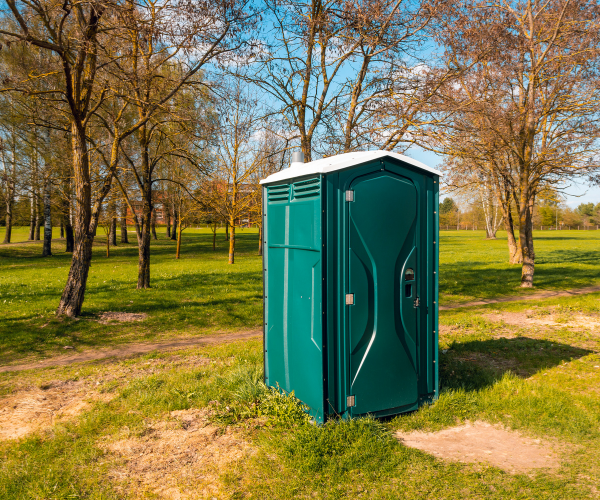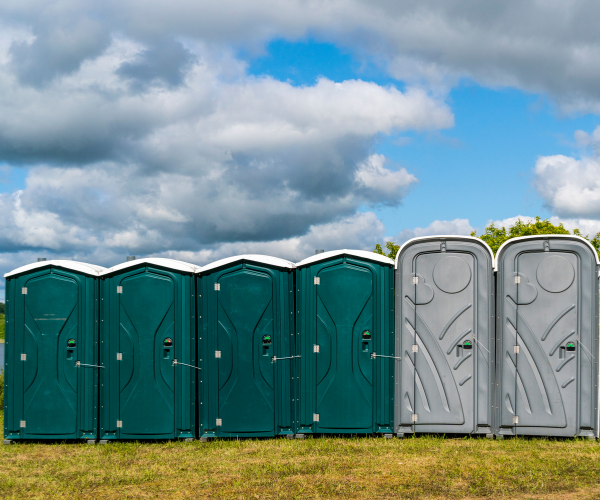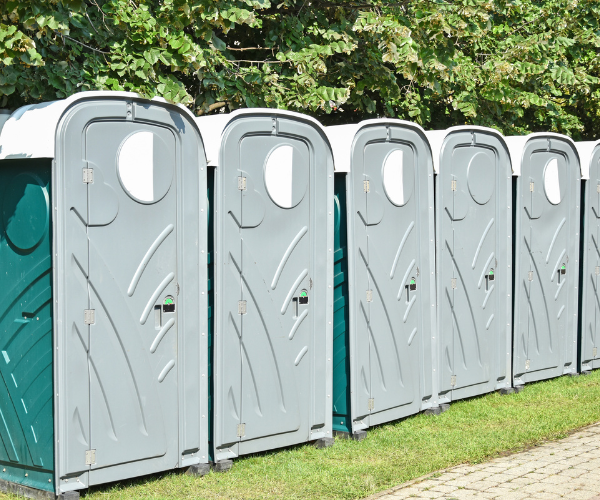Portable toilets offer several eco-friendly advantages that help minimize environmental impacts and promote sustainability. By using these facilities, event organizers can significantly reduce water usage, as traditional restrooms can consume a large amount of potable water daily. Portable toilets use no or minimal water, relying instead on chemicals to break down waste. This feature is particularly beneficial in areas facing water scarcity or during events where water conservation is prioritized. Furthermore, portable toilets can be strategically placed, reducing the need for guests to travel far, which cuts down on emissions associated with transportation. Another ecological benefit is the reduction in contamination risks to natural water resources. Since portable toilets contain waste in sealed tanks, they prevent the seepage that can occur if traditional septic systems fail. This safeguards local water bodies and soil from pollution. Regular maintenance and professional waste disposal services ensure the collected waste is processed efficiently, harmonizing with waste management regulations and reducing the ecological footprint. Portable toilets also support waste-sorting efforts because they can be equipped with receptacles for recycling and composting bathroom waste products, enhancing overall sustainability. By opting for portable toilets, you contribute to reducing the infrastructure strain on permanent sanitary facilities, which might not be equipped to handle large crowds, especially during big events. This choice limits the potential overuse and subsequent breakdowns or inefficiencies of traditional systems. Furthermore, modern designs increasingly focus on using sustainable materials that can be recycled or have a lesser environmental impact, further promoting eco-friendly practices. Portable toilets' adaptability makes them suitable for various events and venues, bolstering their eco-friendliness by minimizing spatial and environmental disruption. Whether set in remote, pristine environments or bustling urban areas, their deployment and removal leave little ecological trace when managed properly. Education on proper use and maintenance is often provided, encouraging environmentally-sound usage and fostering an ethos of collective responsibility. In conclusion, the use of portable toilets represents a conscious step towards more sustainable event management practices. By choosing portable sanitation facilities, organizers demonstrate a commitment to environmental stewardship, ensuring that event impacts are managed thoughtfully and sustainably.

Portable Toilet Rentals in Asheville, North Carolina
Call today for a free quote (828) 576-3285
Portable Toilet
Fast, Easy, & 100% Free To Get Started
Over 20 Years Experience
With over 20 years of experience serving Asheville, Griffin Waste has built strong community ties through a steadfast commitment to quality. We pride ourselves on being a trusted, local service provider dedicated to ensuring complete customer satisfaction with every portable toilet we deliver.
Excellence in Portable Toilets
Griffin Waste provides exceptional portable toilet services, celebrated for their cleanliness, durability, and convenience. Our commitment to quality shines through our meticulous service and focus on customer satisfaction, establishing us as a leader in Asheville's portable sanitation industry.
Rapid and Reliable Service
Experience quick and reliable delivery and installation of portable toilets with Griffin Waste. Our efficient services ensure that your sanitation needs are met promptly without compromising quality, making us the preferred choice for events big and small.
Reliable Portable Toilets in Asheville
Call for a Free Quote Today
(828) 576-3285
Griffin Waste offers dependable, locally owned portable toilet services in Asheville, North Carolina, and nearby areas. As a reliable partner, we cater to all types of events, from bustling construction sites to intimate weddings, lively festivals, and vibrant parties. Our professional team provides top-quality sanitation solutions tailored specifically to your needs, always prioritizing your satisfaction. With years of industry experience, we have established a reputation for delivering clean, durable, and efficient portable toilet units. Our commitment to service extends to surrounding regions, granting you access to our modern facilities wherever you are. Choose Griffin Waste for a seamless, stress-free experience, allowing you to focus on enjoying your event.


Our standard porta john rental units are durable and reliable for any commercial build site, housing development, public works project, or remodel job.Features include dome lighting, grated floors, and an “In-Use” locking mechanism for privacy and comfort. Regularly maintained, inspected, and cleaned by FusionSite at your location.

Developed as an alternative to full ADA-compliant restrooms, the Liberty is a spacious, wheelchair-accessible unit that can also be promoted as a family-sized restroom. Includes a patented flat-floor system for easy wheelchair access and maneuverability.Handrails, paper holder, and rotary latch are designed for simple, intuitive end-user operation.

Portable hand washing stations are essential for keeping your work site sanitary and clean. Features hands-free foot pumps, liquid soap, and paper towels.Perfect for job sites without water hookups, these units can handle hundreds of washes between services.
We Proudly Serve
Standard Portable Toilets
Griffin Waste provides reliable, standard portable toilet services across North Carolina, ensuring cleanliness and convenience for every occasion.
High Rise Portable Toilets
Our high-rise portable toilets in Asheville offer elevated sanitation solutions for multi-story construction sites, ensuring accessibility and cleanliness.
Restroom Trailers
Enjoy comfortable, convenient restroom trailers from Griffin Waste, available in Asheville for events requiring upscale bathroom facilities.
Roll off Dumpsters
Griffin Waste offers efficient roll off dumpster services in Asheville, perfect for waste management during construction or large events.
Septic Tank Cleaning
Griffin Waste in North Carolina offers comprehensive septic tank cleaning services, ensuring top-notch maintenance and hygiene.
Grease Trap Cleaning
Griffin Waste provides professional grease trap cleaning services in Asheville, ensuring your facilities remain sanitary and odor-free.
Fencing & Barricades
At Griffin Waste, we offer secure fencing and barricades for events in North Carolina, ensuring safety and crowd management with ease.
Residential Storage
Griffin Waste offers flexible residential storage solutions in Asheville, perfect for keeping your belongings safe and accessible.
Asheville Waste Solutions
Getting a quote and arranging delivery for a portable toilet rental with Griffin Waste is a straightforward process designed with convenience in mind. We understand the importance of hassle-free logistics, which is why our dedicated team is always ready to assist you every step of the way. Starts by simply contacting us or using our online form, providing basic details about your event's location and requirements. Our team will swiftly prepare a competitive quote, offering transparent pricing with no hidden fees. Once you're ready to proceed, we coordinate the logistics to ensure your portable toilets arrive on time and are set up efficiently. With Griffin Waste, you're not just renting equipment; you're gaining a partner committed to elevating your guest experience. Trust us to deliver not only top-quality portable restrooms but also unmatched support throughout your event planning journey.

Asheville's allure lies in its stunning natural beauty and vibrant community events, making it a prime location for outdoor gatherings. Whether it's a music festival near the iconic Biltmore Estate or a cozy wedding at the annual Bele Chere festival, our portable toilet services ensure your guests enjoy a comfortable experience. We understand the local charm and aim to complement it with clean, reliable restroom solutions. Our commitment to the community is reflected in our tailored services that suit the unique needs of Asheville's diverse events. From scenic parks to bustling street fairs, we provide portable toilets that blend functionality with convenience, perfectly tailored to enhance your event. Choose Griffin Waste for a partner in creating memorable experiences while maintaining the serene beauty of our Asheville venues.
Griffin Waste stands out in Asheville for our consistent dedication to quality and community. Our local experts are familiar with the unique demands of the area, providing personalized solutions that perfectly align with event needs. We pride ourselves on a reputation built over years of service, ensuring our portable toilets are not only clean and reliable but also seamlessly integrated into any occasion. Experience why countless clients trust us for their event needs, benefiting from our deep-rooted commitment to customer satisfaction and efficiency. Our expertise and unwavering focus on quality ensure that your events are equipped with the best portable sanitation services available in Asheville.
At Griffin Waste, we prioritize fast, efficient service to meet the demands of your event. Our dedicated team ensures timely delivery and setup of portable toilet units, backed by our commitment to reliability and professional standards. With a keen focus on customer satisfaction, you can expect our services to match the dynamic pace of your schedule. Our streamlined processes are designed to provide you with swift access to top-quality sanitation services, ensuring minimal downtime and maximum convenience. Trust Griffin Waste to meet your urgent needs with prompt, reliable portable toilet solutions, enhancing your event with ease and professionalism.
Learn More About Our Portable Toilet in Asheville
Renting a portable toilet in Asheville is a seamless process designed for your convenience through Griffin Waste. To begin, visit our website where forms are strategically located at both the top and bottom of each page for easy access. Simply fill out your first name, last name, phone number, and email to initiate your rental request. Throughout our site, you will also find 'Get A Quote' buttons because we understand the importance of quick access to information. Clicking these buttons allows instant communication with our team, ready to provide personalized quotes and additional information suited to your specific event requirements. Our user-friendly system ensures that potential clients can effortlessly navigate their way to the services they need. After submitting your details, expect prompt communication from our customer service team, who are committed to turning around quote requests swiftly to better accommodate your planning needs. This proactive approach, coupled with our local expertise, makes the entire rental process straightforward and efficient. In addition to our standard online offer, feel free to reach out directly via phone for quick discussions on availability, pricing, and specific amenities your event may require. We pride ourselves not only on the quality of our portable toilets but also on responsive and insightful customer service. Our streamlined rental process is just the start. Once finalized, we handle delivery logistics seamlessly, ensuring your portable toilets arrive precisely when needed, ready for immediate use. Griffin Waste tips the balance in your favor with tailored solutions entirely catered to your event's unique requirements.
When renting portable toilets from Griffin Waste, the typical delivery timeframe can vary depending on the size and scope of the order, as well as event location requirements. Generally, our delivery services are planned to align with client schedules, ensuring timely setup well before your event begins. For standard orders, you can expect delivery within 24 to 48 hours after confirming rental arrangements and finalizing details. For large-scale events or specialized equipment requests, some additional lead time might be necessary, allowing us to adequately prepare and dispatch the appropriate units. Regardless of order size, we strive to maintain flexibility to accommodate last-minute adjustments, verifying our capacity to adapt to any unexpected changes in event logistics. Our experienced team is always on hand to expedite the delivery process while ensuring all portable toilets are professionally installed and fully functional upon arrival. To further streamline the process, we offer comprehensive logistical management, coordinating access and placement as efficiently as possible. Griffin Waste's commitment to prompt, reliable service means even in busiest seasons, such as during major festivals or town events, our solutions remain accessible. Prior consultation ensures we can align our services perfectly to fit your schedule, regardless of general demand fluctuations. Such attentiveness in planning and execution guarantees the highest level of satisfaction and operational convenience for every client. Our focus extends beyond mere delivery; it's about ensuring full readiness and unwavering support throughout your event's duration.
Yes, at Griffin Waste, we pride ourselves on being versatile in servicing all types of events and construction sites. We provide an extensive range of products including luxury restroom trailers, porta potties, roll off dumpsters, fencing, barricades, holding tanks, ADA units, as well as portable sinks and hand sanitizer stations. Our comprehensive offerings ensure that every event, from large festivals and sporting events to weddings and corporate events, is adequately serviced. With the capability to accommodate diverse requirements, we also cater to family reunions and any other type of special event, ensuring that your guests and participants have access to the highest quality sanitation solutions. This commitment to providing varied and flexible services helps us stand out as a reliable partner in event planning. For construction sites, we recognize the importance of durability and utility, and hence, offer specialized units designed to withstand rugged environments while providing functionality and comfort. We ensure timely delivery and regular maintenance of our portable facilities, so operations can continue uninterrupted. Our experienced team is well-versed in handling logistical challenges associated with these environments, ensuring efficient setup and ongoing support. Moreover, we are adaptable to changing needs, capable of making swift adjustments to accommodate any project expansion or shift in event dynamics. In essence, Griffin Waste's extensive suite of services and products, combined with our customer-focused approach and local expertise, ensures that we can meet the demands of any event or construction project with professionalism and efficiency.

